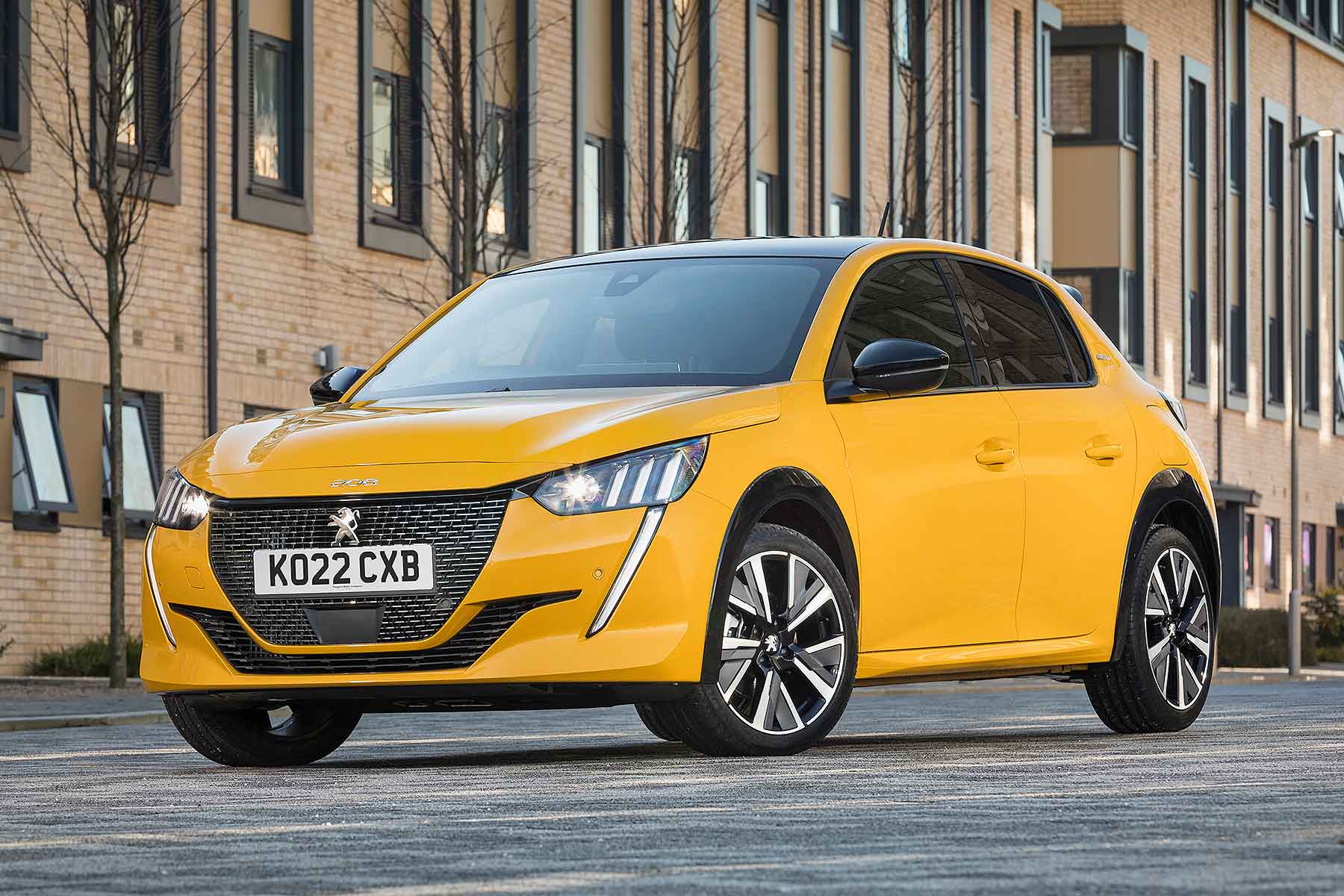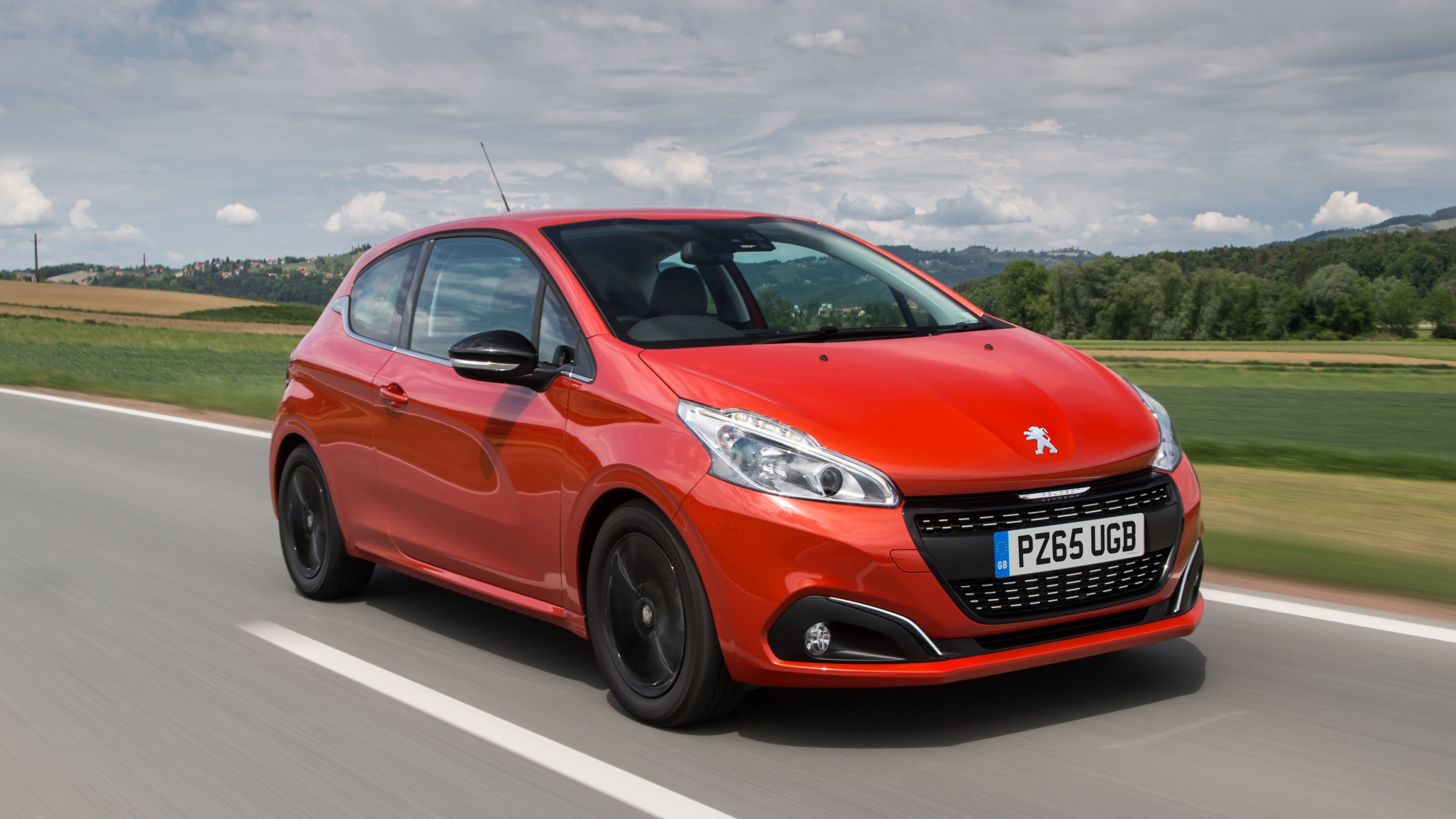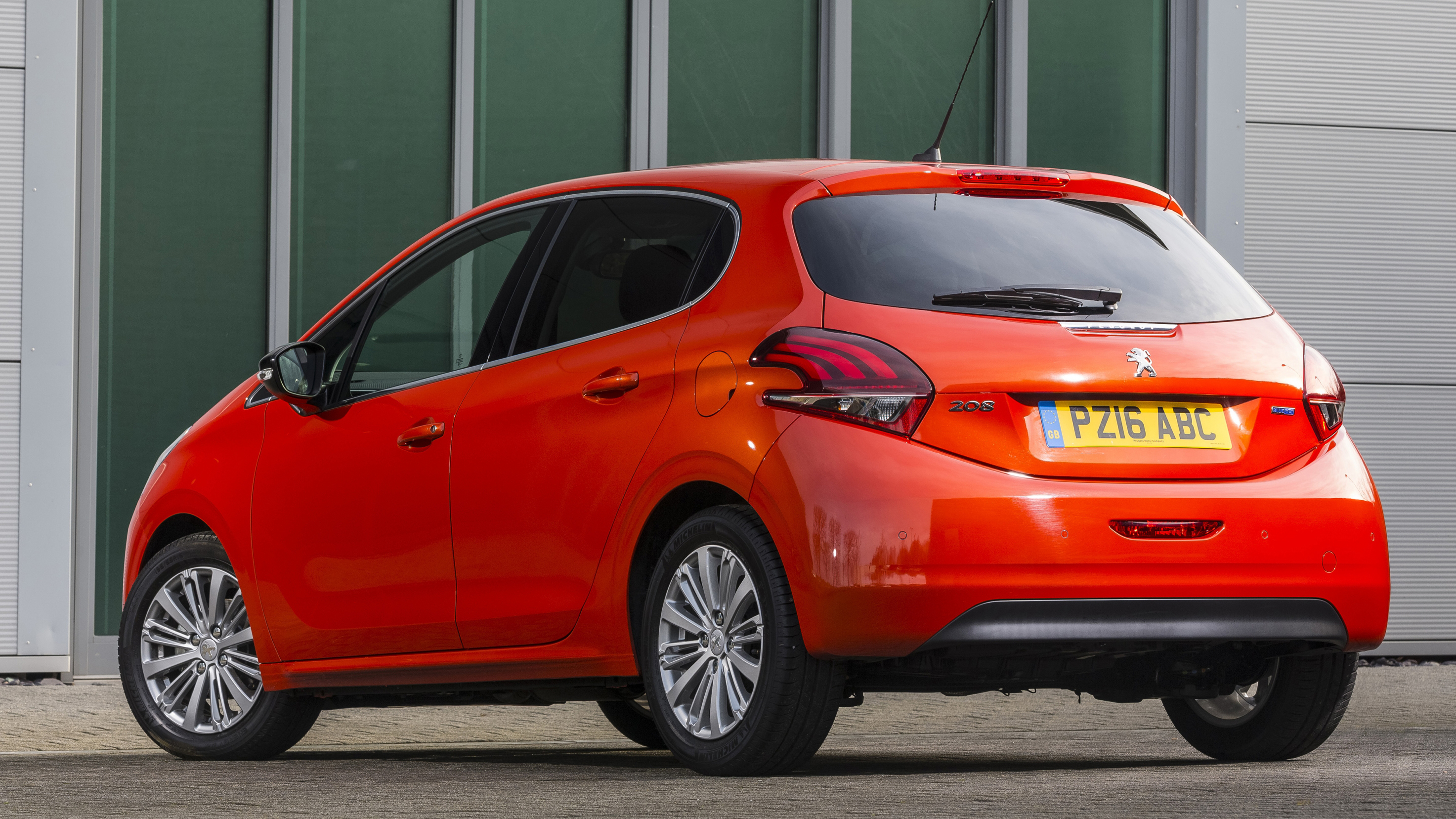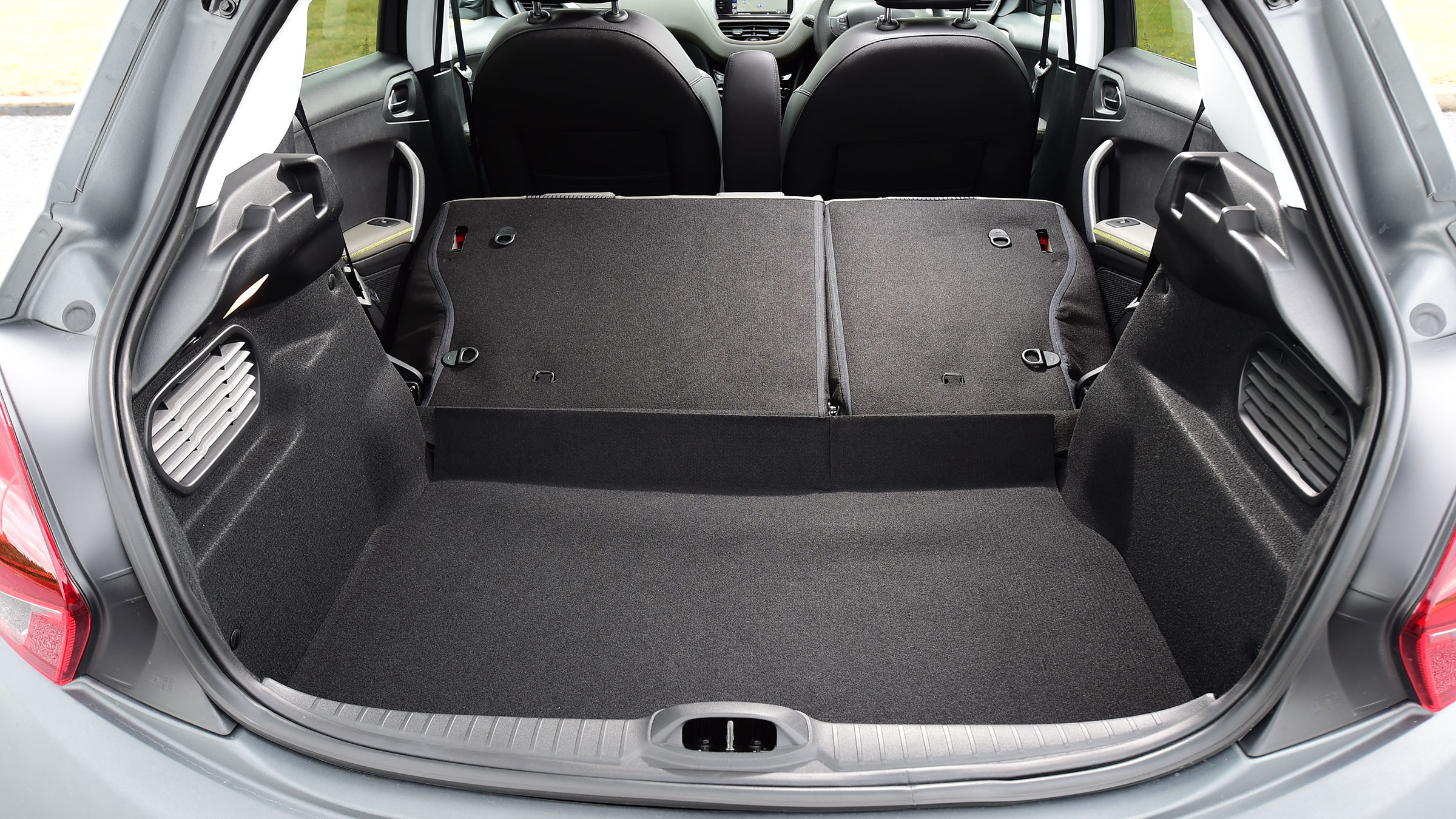Peugeot 208 (2012-2019) Review
Stylish and economical, the Peugeot 208 is a supermini with extra chic
Strengths & weaknesses
- Stylish
- Good value as a used car
- Economical petrol engines
- Interior & electrical gremlins
- Ride is bumpier than some rivals
- Cars with the five-speed gearbox are noisy
Peugeot 208 prices from £5,489 Finance from £164.08 per month
This is the previous-generation Peugeot-208, the French brand's answer to a hugely competitive market of compact superminis that includes the Volkswagen Polo, Seat Ibiza and Vauxhall Corsa. It's a little out-dated now, with minimal on-board tech in all but the highest spec models, while there are also some question marks around build quality and reliability. But, if you're looking cheap small car that's going to offer great value for money, then a used Peugeot 208 is likely to fit the bill.
One of the strengths of this version of the 208 is the fuel economy on offer from the entire engine range, with figures of more than 50mpg very manageable with any of the diesel or petrol motors. Post-2015 diesel models also comply with Euro 6 emissions standards, so there's risk of being subjected to ULEZ charges. There's also the question of style, which Peugeot has certainly been delivering in recent years - more so than many alternatives.
It was on sale for six years, with only minor updates throughout that lifespan, so it didn't change an awful lot. That means it doesn't really matter whether you opt for a later or earlier model, unless you're keen for Apple Carplay in which case you should avoid anything pre-2015. It also means used prices for the 208 are remarkably lower than similar-aged alternatives such as the previous-generation Ford Fiesta or Volkswagen Polo.
But if you have your eyes on a brand new or nearly-new car, then it’s worth considering your other options because the Peugeot has been left behind by a flurry of new, extremely high-quality superminis. The new Polo, Fiesta and Seat Ibiza - as well as the Skoda Fabia and Vauxhall Corsa - are all more comfortable than the 208 when it comes to soaking up the jolts caused by bumpy roads or potholes.
You feel the effect of these road defects in the Peugeot because of its stiff suspension, which is meant to reduce leaning in corners, as well as giving it a nimble feel, but both the Fiesta and Ibiza are better in these respects too. The 208 GTi hot hatchback is an exception, with blistering performance and sharp cornering.
The Peugeot has an unusually small steering wheel, which gives it a slightly sportier feel but it’s easy to obscure the speedometer. As a result, you may find yourself driving with the wheel set lower than you’re used to, in order to see your speed. The driver’s seat is height adjustable, and the steering wheel adjusts for height and reach.
The 311-litre boot that's average when compared to the 208's supermini rivals. There's enough room in the back for two adults to sit comfortably, although three is a bit of a squeeze.
The Peugeot 208 recieved a five-star Euro NCAP safety rating in 2012, making the 208 one of the safest cars from this period. The tests carried out since then have been toughened, so it’s not known how well the Peugeot compares with the latest models.
If you're looking for the more recent Peugeot 208 or electric Peugeot e-208, we have some excellent used deals already coming onto the market and ready for you to purchase with BuyaCar.
Key facts
| Warranty | 3 years / 60,000 miles |
|---|---|
| Boot size | 311 litres |
| Width | 1739mm |
| Length | 3973mm |
| Height | 1460mm |
| Tax (min to max) | £140 to £200 in first year, £140 thereafter / Pre-April 2017 cars: £0 to £20 |
Best Peugeot 208 for...
Best for Economy – Peugeot 208 Active 1.6 Blue HDi 75
With an official economy figure of 94.2mpg, this least powerful diesel is the fuel-sipper in the 208 range, even if the real-world economy of around 57mpg is considerably lower. On the used market, the discontinued 1.4 HDi is just as efficient.
Best for Families – Peugeot 208 Allure 1.2 PureTech 110
With typical discounts of around £5,000, this car is an excellent family choice with a powerful but frugal petrol engine and Allure trim that includes parking sensors, automatic headlights and wipers, plus MirrorLink, Android Auto and Apple CarPlay phone connectivity.
Best for Performance – Peugeot 208 GTi by PeugeotSport
The 208 GTi is the fastest 208 by some distance, with a 0-62mph time of 6.5 seconds. Fuel economy is impressive for a hot hatch too, even if the real-world 39mpg doesn't come close to the official figure of 52.3mpg
One to Avoid – Peugeot 208 Active 1.6 BlueHDi 75
The least-powerful diesel Peugeot takes an achingly long 13.3 seconds to accelerate from 0-62mph, which makes it hard-work and noisy on motorways. And if you only want a city car, then petrol is a better option.
History
- 2012 Peugeot 208 launched
- September 2012 Peugeot 208 is recalled for potential brake failure.
- September 2012 Luxurious XY special edition launched wth purple paint , sporty GTi bodywork, Alcantara seats and panoramic sunroof
- February 2014 Cars built in January 2014 recalled for possible fuel leak.
- April 2014 Cars built September 2013 to November 2014 recalled for potential failure of front suspension.
- March 2015 Cars built on 3 December 2014 recalled for potential failure of front suspension.
- June 2015 Updated 208 launched with restyled front bumper and a wider grille, and new rear LED light clusters. All diesel engines become Euro 6 compliant (making them exempt from forthcoming emissions charges)
- November 2015 Apple CarPlay added to 208s fitted with a touchscreen.
- February 2016 Cars built April to July 2015 recalled for possible fuel leak if they roll over.
- March 2016 Peugeot 208 XS special edition includes 16in alloy wheels, silver/yellow or blue/orange paint and front fog lights in addition to Active trim.
- September 2019 Brand new Peugeot 208 goes on sale replacing this model and introducing the electric Peugeot e-208.
Understanding Peugeot 208 names
Trim level Active
The trim levels dictate the amount of equipment that comes as standard. They begin with Active, Allure, Allure Premium, GT Line and GTi.
Engine 1.2 PureTech 82
The size of the engine is given in litres (here it’s 1,2), but there are different versions of the same-size engine, so the horsepower is also shown (82 in this example). This may also be referred to as PS. Petrol engines are badged PureTech or THP, while diesel ones are BlueHDi
Gearbox EAT6
There are two types of automatic gearbox offered in addition to the manual: the basic ETG5, which is economical but slow to change, and the more advanced EAT6, which is slicker but less fuel-efficient.
Peugeot 208 Engines
Petrol: 1.2 PureTech 68, 1.2 PureTech 82, 1.2 PureTech 110, 1.6 THP Diesel: 1.6 Blue HDi 75, 1.6 Blue HDi 100, 1.6 Blue HDi 120
When its worst official fuel economy figure is 58.9mpg (excluding the high-performance GTi), then you know that the Peugeot 208 is not going to break the bank in fuel costs. That remains the case, even though the car’s real-world fuel consumption doesn’t match the lofty brochure figures.
The cheapest engine is the 1.2 PureTech 68. The Equa Index, which publishes mpg estimates based on real-world driving (as opposed to the optimistic official figures), suggests that you can expect around 44mpg, rather than the official 60.1mpg figure.
Unless you’re on a really tight budget, then it’s best to skip this underpowered 68 horsepower (hp) engine for the more powerful 82hp version. Fuel economy in normal driving is just about identical, according to the Equa Index, but acceleration is noticeably better, particularly when it comes to overtaking on faster roads.
However, the pick of the petrol range is the 1.2-litre PureTech 110. The extra power in this 110hp engine, makes accelerating faster and smoother, while real-world fuel economy drops only slightly to 42mpg (which is admittedly an enormous difference from the official 65.7mpg figure). All of the petrol engines are a little noisy at speed because the gearbox only has five instead of six speeds.
Diesel fuel economy might appear stratospheric, but is disappointing in the real-world. You should lop almost 40mpg off the official 94.2mpg figure for the 1.6 BlueHDi 75 engine, according to the Equa Index, which suggests that you’ll only see an average of 56.6mpg.
You’ll occasionally hear some characteristic rough revs, but the 208’s diesel range is fairly quiet and smooth. If you do want one, then the 100hp 1.6 BlueHDi 100 feels less lethargic on the road than the entry-level motor, and records similar real-world economy.
The BlueHDi 120 is the fastest but available only in expensive GT Line trim. Fuel economy in normal driving is virtually identical to the other two diesel engines, even though the official figure is considerably lower.
The hot hatch GTi is powered by a 1.6-litre petrol engine that produces 208 horsepower (by happy coincidence) and enables it to accelerate from 0-62mph in 6.5 second. Official fuel economy is a surprisingly good 52.3mpg. Expect just under 40mpg in normal driving.
|
Fuel |
Fuel economy |
Power |
Acceleration (0-62mph) |
Top speed |
|
|
1.2 PureTech 68 |
Petrol |
60.1mpg |
68hp |
13.8sec |
103mph |
|
1.2 PureTech 82 |
Petrol |
58.9mpg |
83hp |
13.5sec |
109mph |
|
1.2 PureTech 110 |
Petrol |
65.7mpg |
110hp |
9.6sec |
118mph |
|
1.6 THP |
Petrol |
52.3mpg |
208hp |
6.5sec |
143mph |
|
1.6 Blue HDi 75 |
Diesel |
94.2mpg |
75hp |
13.3sec |
106mph |
|
1.6 Blue HDi 100 |
Diesel |
94.2mpg |
100 |
10.7sec |
116mph |
|
1.6 Blue HDi 120 |
Diesel |
78.5mpg |
120hp |
9.4sec |
118mph |
Peugeot 208 Trims
Active, Allure, Allure Premium, Black Edition, GT Line, GTi
In general, 208s are well-equipped, but there are some odd exceptions: rear electric windows only come as standard on high-specification Allure Premium models and above, while standard sat-nav is restricted to top-of-the-range models and an alarm is an optional extra on all but the GTi models.
It may be only the entry-level version, but Active cars include air conditioning cruise control, a split/fold rear seat, digital radio and alloy wheels. A seven-inch touchscreen display includes MirrorLink, Apple CarPlay and Android Auto software, so you can easily control some of your phone apps through the screen, including mapping functions. As long as your data allowance is large enough, it makes a built in sat-nav unnecessary.
If the Active trim had rear parking sensors, then it would likely be the best in the range for most drivers. You can either add them as an option for £270 or upgrade to the next trim, Allure, which has them as standard. Additional equipment includes automatic headlights and windscreen wipers, along with larger 16in alloy wheels, for a price that’s around £1,200 more than Active.
Buyers of the 1.2 Puretech 82 engine only have the option of Allure Premium trim - a worthwhile £500 upgrade that adds electric rear windows and folding mirrors, matt black alloy wheels, reversing camera and panoramic glass roof.
You can only move higher up the 208 range to GT Line with the more powerful petrol and diesel engines. The £600 upgrade over Allure adds electric rear windows and folding mirrors from Allure Premium but most of the additions make the car look sportier. These include larger 17-inch alloy wheels, a chrome exhaust, gloss black door mirrors and front grille plus aluminium pedals and red seat stitching inside.
The Black Edition is the only regular 208 available as a three-door car, and is fitted with the 1.2 PureTech 82 petrol engine. It costs around £500 more than Active models, and has a similar specification, with the addition of extra styling features, including black 16in alloy wheels, gloss black door mirrors and grille, plus grey white or black paint options.
At the top of the range are the 208 GTi cars. For a hefty price that starts at more than £20,000 (but can be reduced with Peugeot 208 GTi deals), the GTi Prestige (formerly just called GTi) hot hatchback includes 17in alloy wheels, sat-nav, half-leather sports seats and an alarm, along with a raft of sporty additions, including extra chunky panels around the wheels, a double chrome exhaust, rear spoiler above the back screen and a grille with a chequered flag design.
It’s worth paying more for the 208 GTi by Peugeot Sport, though. This is a tuned model, with extra equipment that offers better cornering grip and responsiveness. A limited slip differential will send more power to the wheels with most grip during cornering, while uprated suspension components keep the car more level and help prevent it being knocked off course by potholes. There are also additional styling upgrades and Alcantara sports seats - but no sat-nav.
Peugeot 208 Reliability and warranty
Peugeot has had something of an up-and-down reputation in terms of customer satisfaction over the years and the latest Auto Express Driver Power survey reflects this. A number of cars, including the new 3008, score highly but owners rank the 208 a lowly 73 out of 75 new models for reliability. Issues with interior quality and electrics were the most common problems; one in ten owners reported some sort of fault in the first year of ownership.
If you’re buying a used 208, then it’s worth ensuring that all of the relevant recalls have been carried out before taking delivery of the car. There have been nine recalls for different versions of the Peugeot, including some serious issues including steering. As long as the recall work has been carried out, there are no safety concerns over the car,
The 208’s warranty is three years or 60,000 miles, whichever comes sooner. It’s typical for the industry but not a patch on Kia’s seven-year cover.
Used Peugeot 208
Against very stiff competition, and now six years old, the Peugeot 208 is ripe for discounting and a bargain on the used car market. In fact, when considering a new 208 you should also check out deals on nearly new examples. Some of these may be pre-registered models – cars on the latest registration plate with little more than delivery mileage. Such cars are registered by a dealership to help it achieve its quarterly sales target and can be much cheaper than even the best discounted new version. Indeed, they can be cheaper than slightly older, nearly new versions with modest mileages.
There’s plenty of choice of colour and specification when it comes to diesel 208s. This plentiful supply, combined with a decline in diesel sales ensure that there are plenty of bargains. Petrol prices are attractive too, and there are no shortage of options. If your annual mileage is around 10,000 miles, then one of these is likely to be a better buy than a diesel.
Peugeot has offered several special editions of the 208, which typically featured exclusive paint colours, unique alloy wheels and special badging. However, they weren't generally packed with extra equipment, so aren't worth paying a premium for - apart from the 208 XY, which had a panoramic sunroof and Alcantara seats - which could be optionally upgraded to leather.
You'll see some Access A/C versions, which are best avoided unless you are looking to pay as little as possible. Until this trim level was discontinued, it was cheapest model, only available with the least powerful engines and lacking split-rear seats and the dashboard touchscreen. Standard equipment inclued electric front windows, Bluetooth for connecting a phone wirelessly, air conditioning, cruise control and driver’s seat height adjustment.
Other Editions

208 (2019)
The Peugeot 208 is one of the most eye-catching small cars around and has a pleasant interior too




.jpg?width=759&height=427&format=webp)
.jpg?width=759&height=427&format=webp)
.jpg?width=759&height=427&format=webp)
.jpg?width=759&height=427&format=webp)